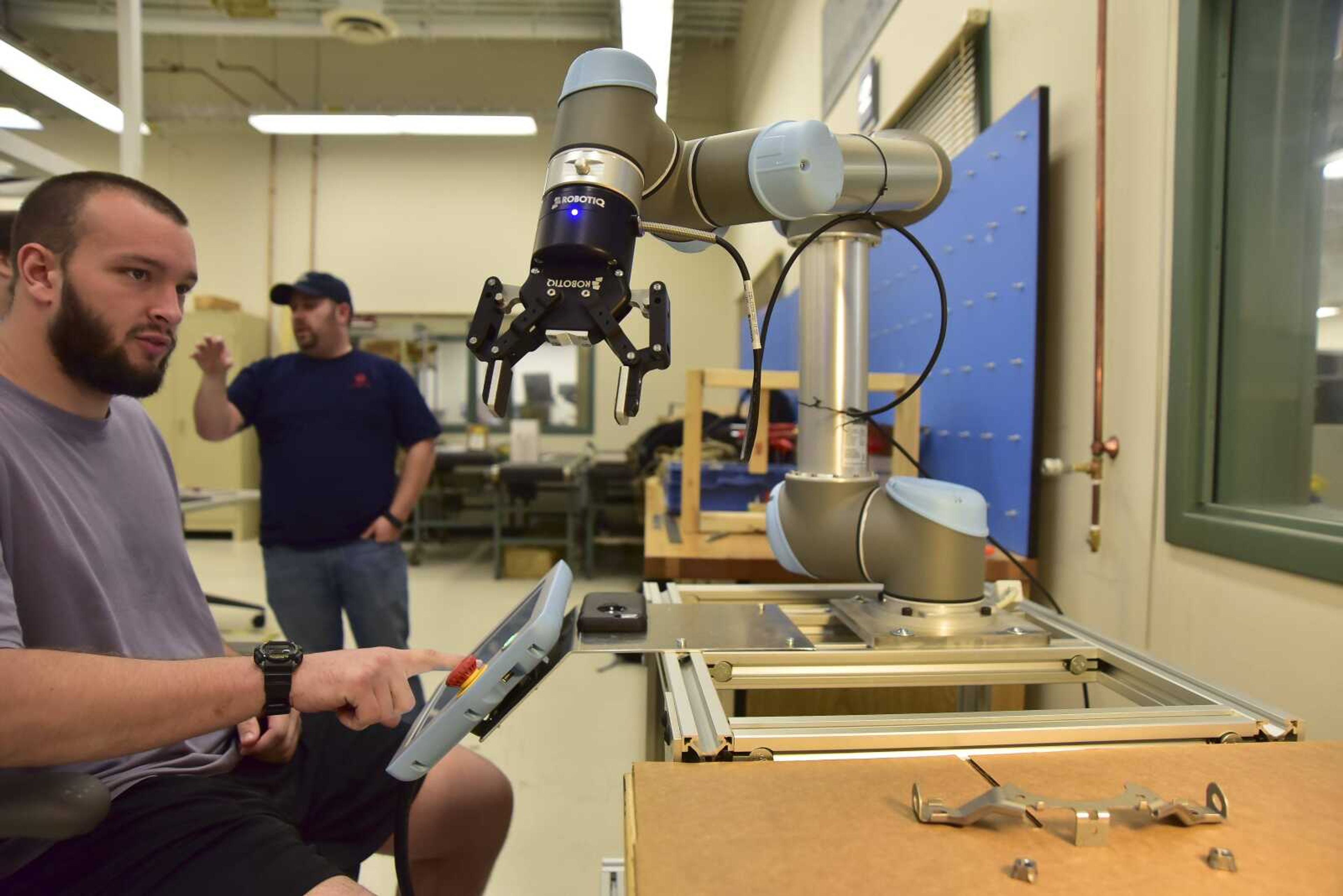Southeast’s polytech department works with local companies to produce technical engineers
Michael Mayor is climbing the ladder at Toyoda Gosei Missouri in Perryville. He started on the floor and has worked his way into an office position. A degree from Southeast Missouri State University would get him securely to another rung in the company -- an engineering position...
This story has been edited to correct inaccuracies.
Michael Mayor is climbing the ladder at Toyoda Gosei Missouri in Perryville.
He started on the floor and has worked his way into an office position. A degree from Southeast Missouri State University would get him securely to another rung in the company -- an engineering position.
"It's much easier to trust you to do that job," Mayor said of the advantage of having an undergraduate degree.
"It helps justify your place."
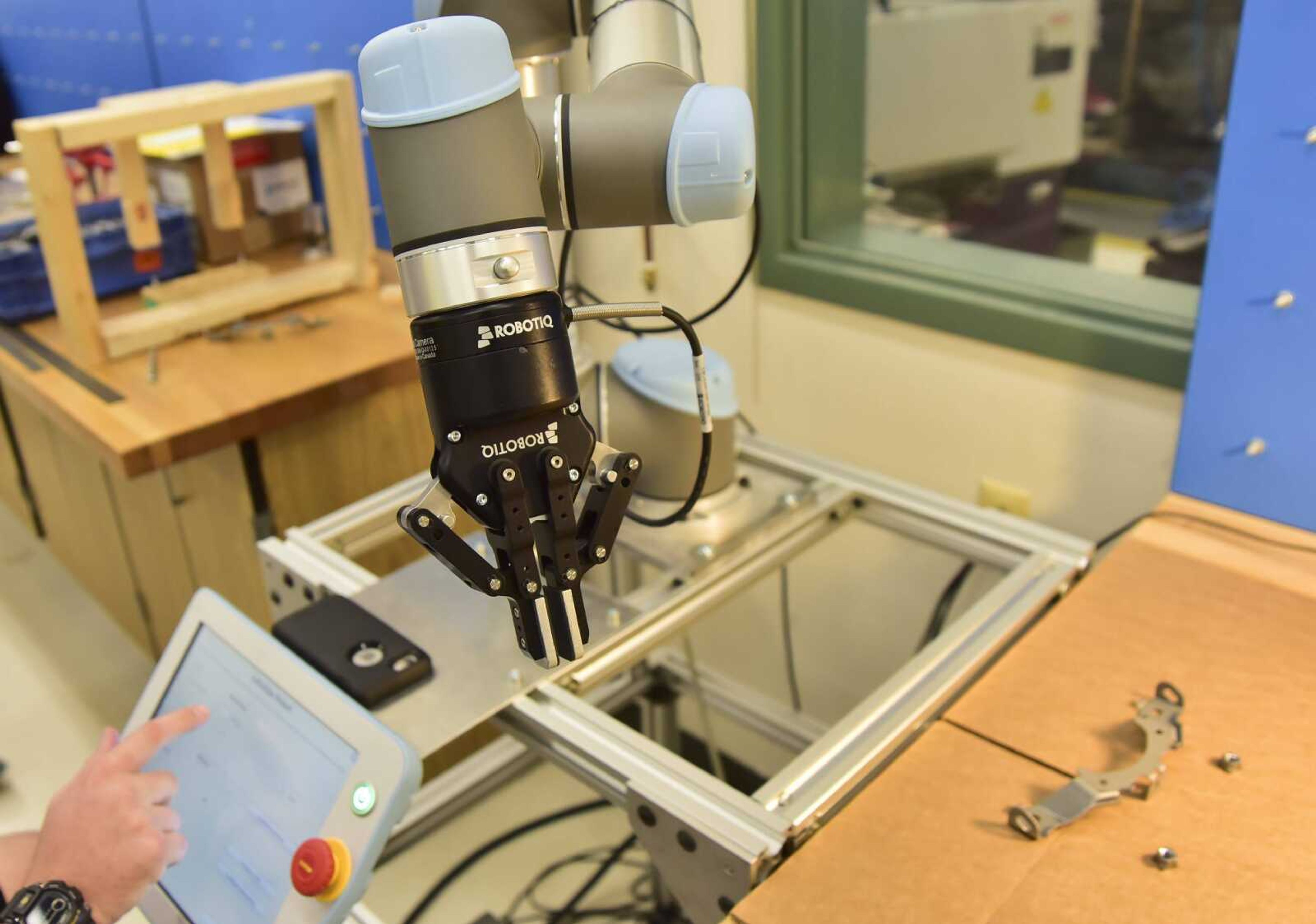
The Southeast polytechnic department received a donation from TG Missouri of a robotic, manufacturing arm and $113,388, according to a news release from Southeast.
Mayor and fellow students Keldon Warfield, Billy Dasher and Jason Beard will use that arm on a project for their engineering-technology class to select a bracket, place it into a fixture and then place two nuts into the fixture.
The system developed to use the robot to put together the fixture will be sent back to TG Missouri.
While the system would not be essential to TG Missouri's processes, it demonstrates engineering-technology students have skills that are directly applicable to needs within the company.
Mayor is one of about 12 students from TG Missouri who have studied in Southeast's polytechnic department over the past few years, polytechnic studies chairman Bradley Deken said.
"TG is one of those special places," Deken said. "The things we're teaching are the things they need."
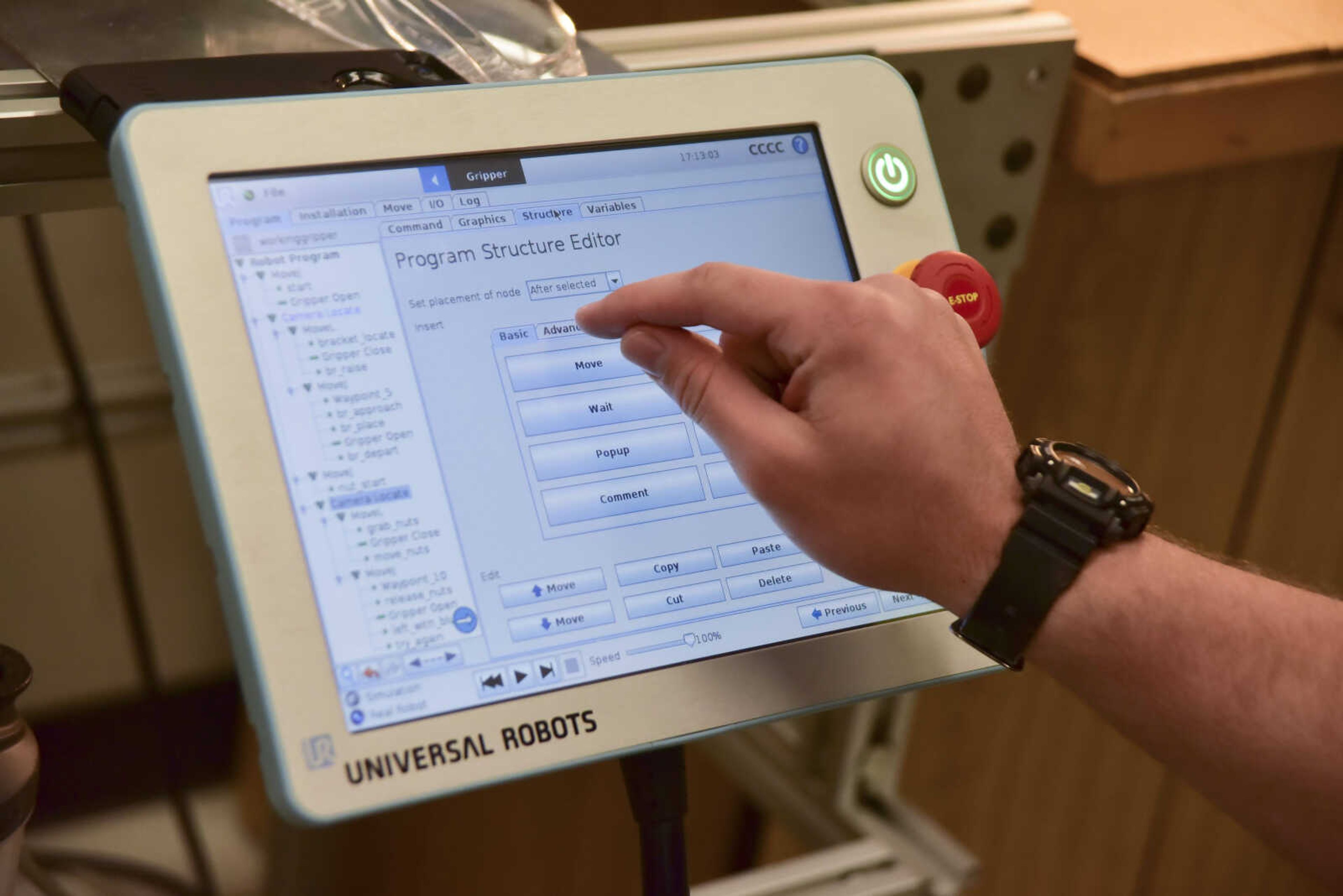
The polytechnic department has projects with other local companies such as Unilever in Sikeston, Missouri, and Link Electronics in Jackson.
The senior projects include students from multiple polytechnic department majors such as construction management, sustainability, technology management, network administration, facility management and graphics. Projects for Unilever include wastewater control -- right for sustainability students concerned about water conservation -- and communications, which is better for graphic-design students.
For Link Electronics, students are working on the most compelling way to convey technical information about a product.
Over time, Deken has fostered relationships with local companies. They have given him advice on curriculum -- specifically, what would be taught to meet their needs. They also have told him they want to hire more students.
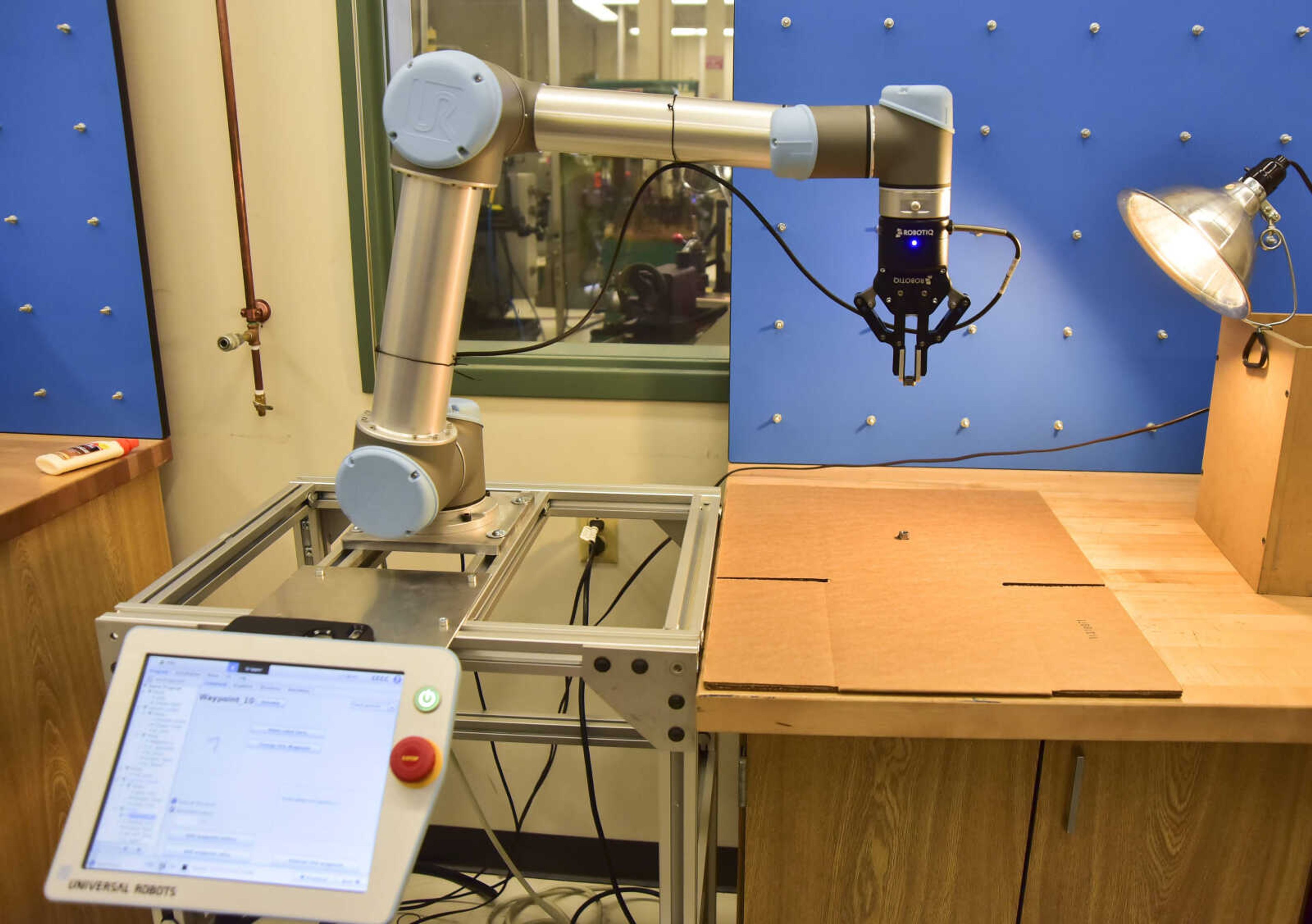
Deken said about 15 engineering-technology students graduate from Southeast each year. One company told him it could hire 30 such students.
"That's just one company," Deken said.
Many seniors in the polytechnic department have jobs they're already working before they graduate, necessitating students changing class schedules.
Although the demand for some manufacturing positions has decreased in the U.S., the demand for skilled workers has remained high, Deken said.
"I think we could quadruple (the number of students graduating), and we would be about where we want to be," Deken said.
Before engineering-technology students can work on robotics projects, they have to take two physics classes, two calculus classes and multiple programming classes.
"If we want to make something, we'll probably have to do some math," Dasher said.
Engineering positions, requiring even more math, are prized by local companies. They have told Deken they have no problem hiring engineers but struggle to keep them in the area.
The polytechnic department is establishing an industrial engineering program next fall, Deken said.
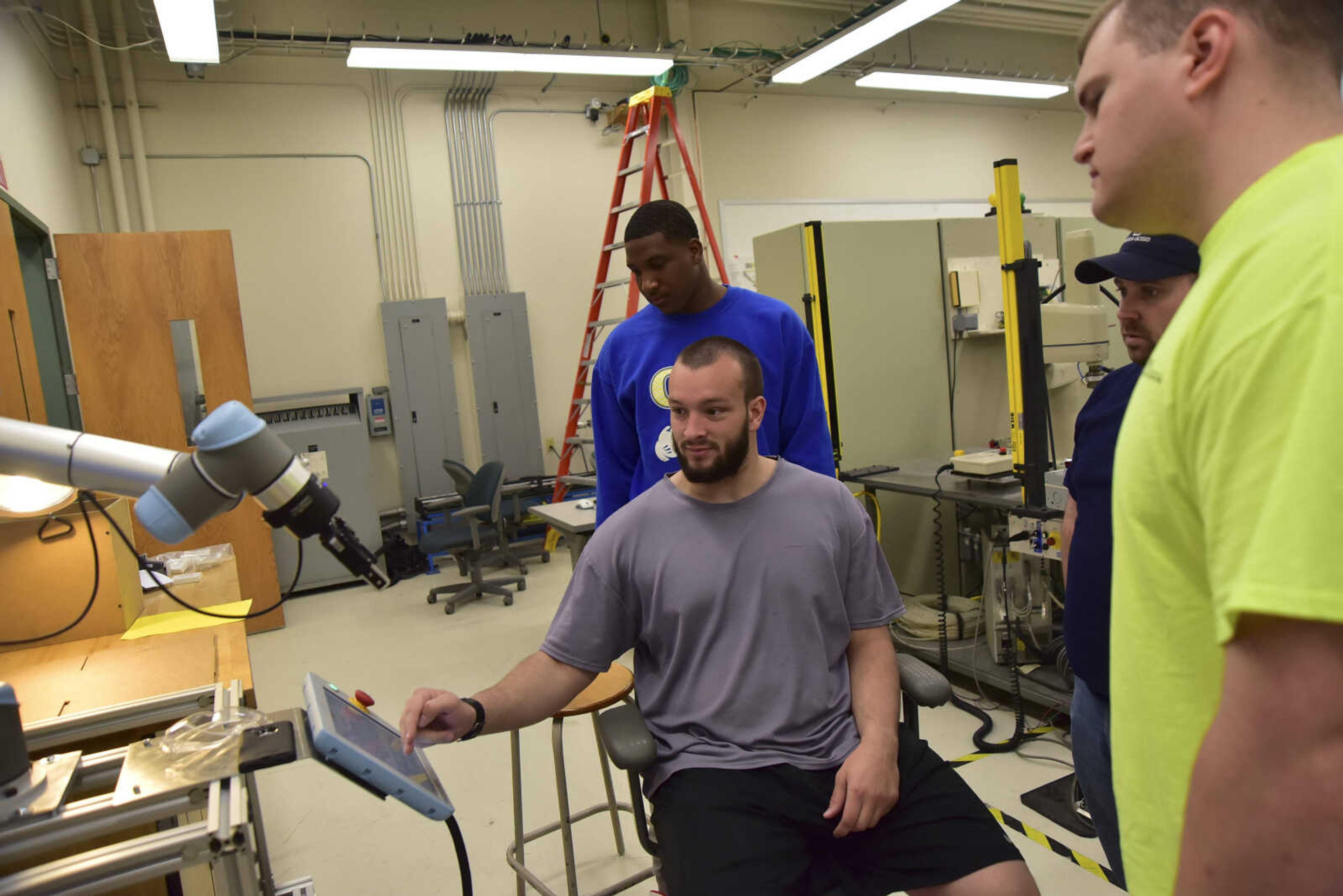
Deken emphasized maintaining a mutually beneficial relationship with local companies is important.
"Our goal is to keep them here," Deken said of his students. "We're a regional school, and this region is important to us."
bkleine@semissourian.com
(573) 388-3644
Pertinent address:
985 Greek Drive, Cape Girardeau, Mo.
Connect with the Southeast Missourian Newsroom:
For corrections to this story or other insights for the editor, click here. To submit a letter to the editor, click here. To learn about the Southeast Missourian’s AI Policy, click here.

